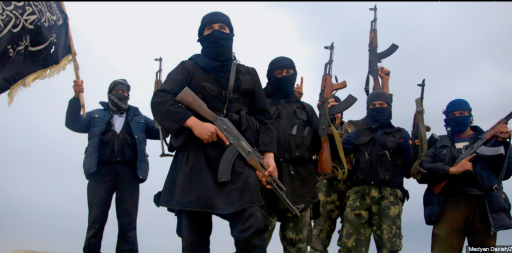THE HARD HAND OF WAR, III
StrategyPage has more details on the thinking behind a seemingly counter-productive policy:
A bomb went off in Basra, wounding eight (including some children.) Locals blamed Baath Party loyalists, and this increased tension between the Shia and the Sunni minority in the south. The Iraqi population knows that most of the violence is carried out by Saddam loyalists (or those who have been paid by Baath Party fat cats), as well as foreigners (Islamic radicals and Arab nationalists). At this point, the Baath Party and foreign Islamic radicals are not very popular among Iraqis.
Since the “war” ended on April 30th, and the “pacification” began on May 1st, 148 U.S. troops have been killed in combat. Because of the high casualties from a shot down CH-47D on November 2nd, there were 30 American military deaths in one week. This sent the American senior commanders in Iraq a message, and that was about the inability of the Sunni Arab tribal leaders to control the Baath Party strongmen and al Qaeda radicals hiding among the Sunni population. So now the policy has changed from “carrot” (reconstruction aid and negotiation) to “stick.” Aid (except for the bare minimum food and medical assistance) will be withheld from areas where are attacks are made and the locals refuse to provide any information. There will be far more raids and “combat patrols” (that are looking for a fight). Movements of Sunni Arabs outside their towns and neighborhoods will be restricted. But perhaps most scary for Sunni Arabs is the threat of bringing in Kurdish or Shia police and paramilitary units to help with security. The Shia and Kurds hate the Sunni, especially those who actively supported Saddam. These new tactics are already working, as some Sunni tribal chiefs who had been uncooperative have changed their attitude. Chiefs who are defiant, or are caught aiding the attackers, will be jailed, so it can be expected that chiefs will at least appear more cooperative. But the chiefs have another incentive, and that is the presence of many anti-Saddam Sunni Arabs. These have been providing some information to the coalition, which is how the coalition knew anything at all about the Baath Party and al Qaeda networks operating in Sunni areas. But the more aggressive patrolling and stricter movement security makes it easier to follow up on any tips from informants, and harder for Sunni fighters to move around and mount attacks. These new policies will make Sunnis angrier, but the decision has been made that increased anger is not as much a problem as wiping out the Baath and al Qaeda networks in Sunni areas is.
We shall see, I guess. It will depend, above all, on how quickly this can be done. If the “hornets’ nests” can be cleared out quickly, it’s conceivable that the good will outweigh the harm. But if this drags on for months, I don’t see how our overall mission can be helped.






From “The Dilbert Principle” by Scott Adams:
“AFter you get your way, turn instantly into the sweetest person your victim has ever seen. Buy candy. Call the victim’s boss and leave kudos. Sing the victim’s praise while others are nearby. This widens the gap between the experience people have when they satisfy you and the experience they have when they don’t.”
Not only does it work for preschool children and cubicle dwellers, it works in greater geopolitical terms as well! Who’d a thought?
—